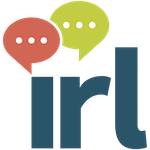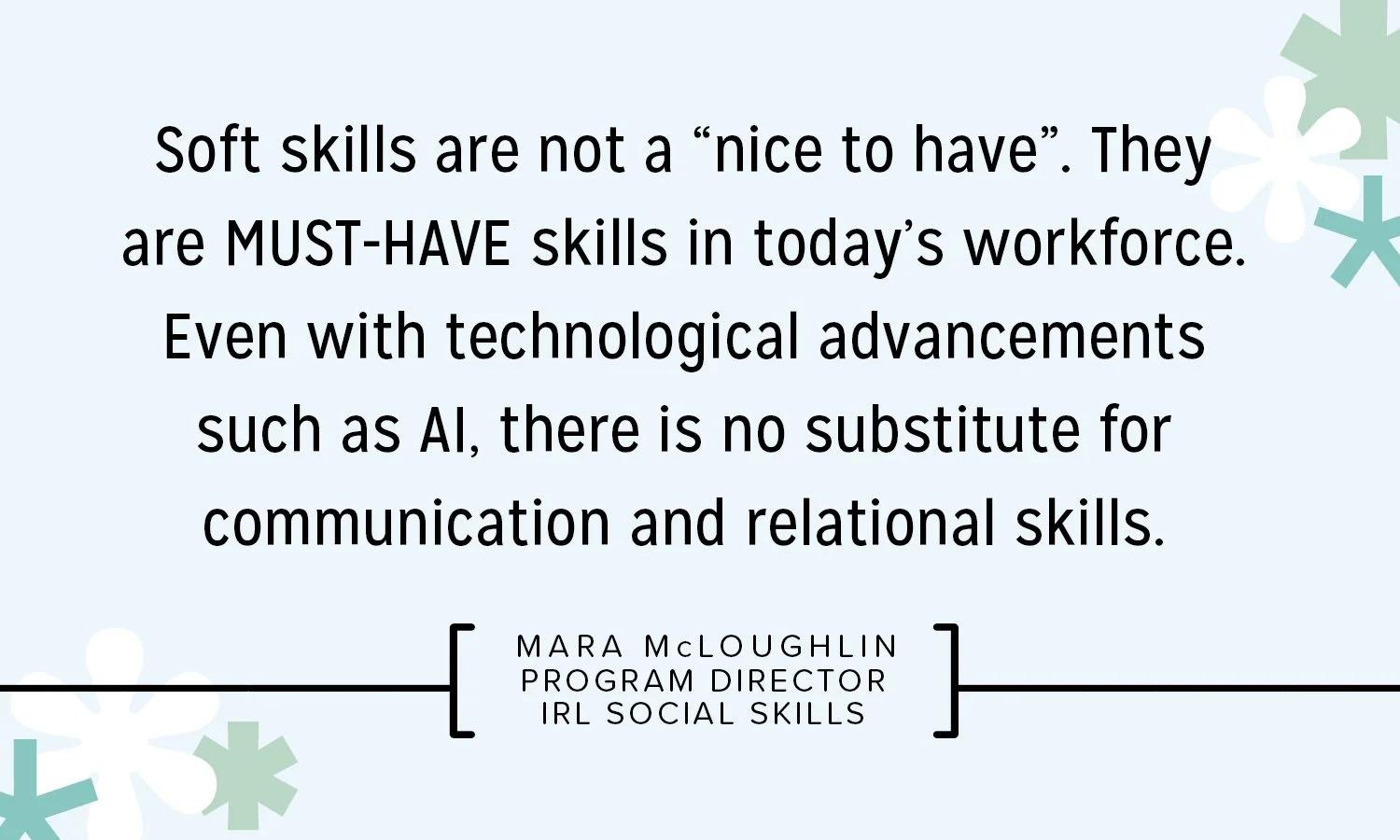Why soft-skills are essential skills in the workplace
In today's competitive professional landscape, social skills are increasingly recognized as a cornerstone of career success. However, many individuals encounter obstacles in their work opportunities due to challenges in interpersonal communication and relationship-building. Whether stemming from developmental nuances, communication barriers, psychological hurdles, or a desire for advancement, the demand for social skills coaching for the workplace is growing.
A recent report by Deloitte revealed that 92% of companies report that human capabilities or “soft skills” matter as much or more than hard skills in today’s business world. But what exactly do we mean by soft skills? Soft skills include skills such as…
Communication
Problem solving
Adaptability
Critical thinking
Time management
Interpersonal skills
Teamwork and collaboration
Essentially, the skills you study to accomplish a given task—such as computer programming, being a dog groomer, or manufacturing goods—are “hard skills.” Soft skills are sometimes referred to as “people skills,” as they pertain to how well you interact and communicate with others, as well as how well you manage yourself in different situations.
There are many reasons why people may have underdeveloped soft skills, including:
Developmental factors
Social skills are learned and developed over time through experiences, interactions, and observations. Some individuals may have had limited opportunities to develop these skills during childhood due to factors such as shyness, social anxiety, or a lack of social exposure.
Environmental influences
The social environment in which a person grows up can significantly impact their social development. Factors such as family dynamics, socioeconomic status, cultural background, and peer relationships can all influence how well someone learns social skills. We learn what we are modeled, so many individuals learn later in life that the social skills they learned as children are inadequate as adults.
Communication barriers
Some individuals may struggle with social skills due to difficulties in communication, such as trouble understanding social cues, interpreting nonverbal signals, or expressing themselves effectively. Though often associated with conditions like autism, attention deficit hyperactivity disorder (ADHD), or other developmental disorders, anyone can experience communication difficulties, regardless of diagnosis.
Psychological factors
Mental health issues like depression, anxiety, or low self-esteem can hinder a person's ability to engage in social interactions comfortably. They also impact one’s energy and desire for social stimulation. These conditions may lead to avoidance of social situations or difficulty forming and maintaining relationships.
Life experiences
Traumatic experiences, bullying, or past rejections can impact a person's confidence and willingness to engage in social interactions. Negative experiences may lead to social withdrawal or defensive behaviors that hinder social skill development.
Socialization challenges
The increasing reliance on digital communication and social media can affect face-to-face social interactions. Some individuals may struggle to navigate in-person social interactions due to a preference for online communication or a lack of practice in real-life social settings.
Cognitive factors
Some individuals may have difficulties with perspective-taking, showing empathy, or understanding social norms, which can affect their ability to navigate social situations effectively.
Soft skills can be taught and learned through group social skills coaching
Soft skills challenges can be addressed effectively through social skills training and practice in real-life situations.. It’s why we created a holistic program that welcomes and involves the whole person in learning these skills.
Every coaching session starts with somatic (body-based) exercises to tune in to our nervous system as the foundation for relating to others. After all, how can we show up authentically and feel empowered and capable, if we’re not tuned into our own inner world? Breathing exercises, movement, and other ways of noticing our body’s signals set the stage for deeper learning and engagement. From there, we work on essential communication skills for a variety of situations with an emphasis on workplace skills such as team communication, collaboration, effective feedback, and conflict resolution.
Soft skills are not “nice to have”. They are MUST-HAVE essential skills in today’s workforce. Even with technological advancements such as AI, there simply is no substitute for effective communication and relational skills. —Mara McLoughlin, IRL Social Skills Program Director
Understanding the pivotal role of social skills in professional success underscores the necessity of targeted support to unlock one's full potential in the workforce. Social skills coaching can empower you to navigate diverse professional environments with confidence, ultimately opening doors to new job prospects and advancement opportunities.

